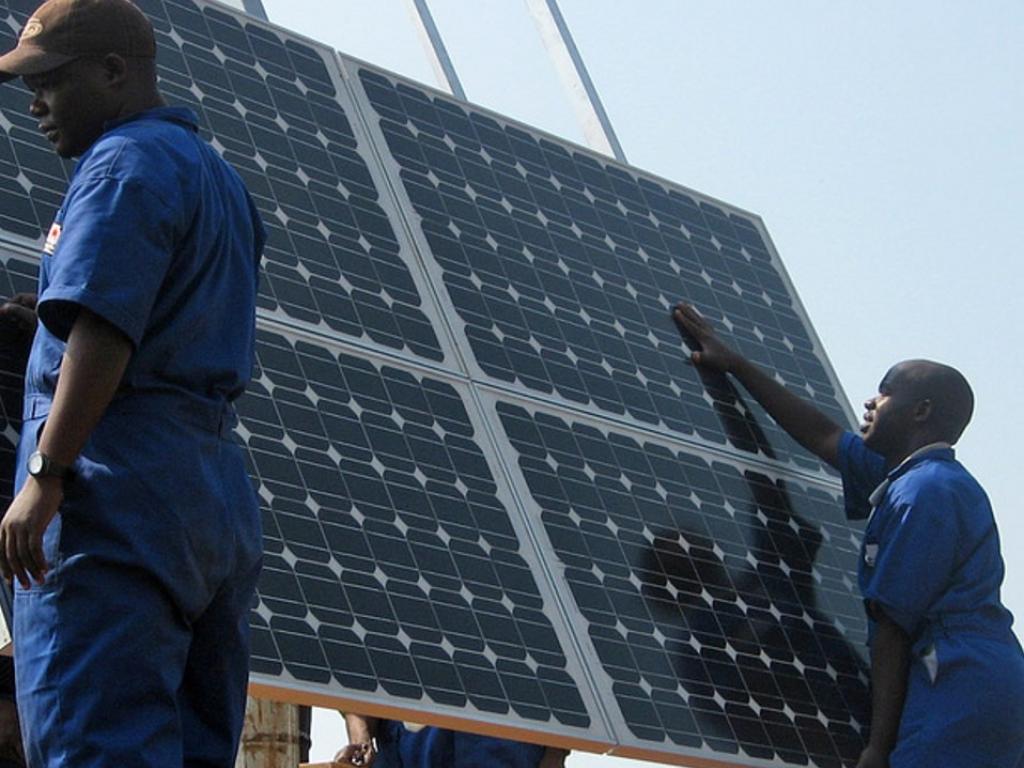Research collaboration towards climate-resilient energy technologies in Africa

Rwanda CAAST-NET (Plus) Workshop for Emerging Researchers in Renewable Energy
By Gavin Chewe
I was fortunate enough to have been invited to attend a workshop for emerging African researchers in renewable energy hosted by CAAST-NET Plus and the Rwandan government’s Ministry of Education. A group of four, represented UCT, namely myself, representing the ACDI, with Holle Wlokas, Edmund Okoroigwe and Kim Coetzee representing the Energy Research Centre attended. The workshop was wonderfully organized by James Haselip and Cecelie Larsen from DTU-UNEP in Copenhagen as well as Mr Jean Nsengiyumva from the Rwandan Ministry of Education.
We were warmly welcomed on the morning of the first day of the workshop by Arne Tostensen, senior researcher at the Research Council of Norway and Ms Marie-Christine Gasingirwa, Director-General of Science, Technology and Research from the Rwandan Ministry of Education. As the workshop got underway, I was impressed by the number of fellow workshop attendees, close to twenty, from all over the continent. During the first break I met Tony Mitchell, an independent consultant and speaker, Richard Seruwagi from Makerere University in Uganda, Kizito Masaba of the Carnegie Mellon University in Kigali as well as many others.
A major theme that was emphasised to us as emerging researchers, was that we should ensure that our various research topics should resonate not only with the private sector or the public sector, but should be applicable and responsive in all respects to the needs of broader society at large. Another theme was that science, technology and innovation do not take place in a vacuum, and the context of our research should be as a pathway to African development. In identifying research gaps and priorities on the continent, both Dr Aschelew Tigabu, research fellow within the AfricaLics Secretariat and Climate Resilient Economies Programme of the African Centre for Technology Studies (ACTS), and Professor Berhanu Abegaz, Executive Director of the African Academy of Sciences (AAS), noted that the following issues needed to be put into focus with regards to energy research on the continent:
- Increased need for low carbon innovation and development
- A need to increase research capabilities
- Increased need to visibly close the gender gap within the African energy sector
- The role of the State in promoting innovation and development and facilitating low carbon innovation systems domestically and regionally
- A renewed focus on the political economy of low carbon innovation and development
- The role that low income countries have played in the diffusion, adoption and development of renewable energy technologies
Echoing this sentiment, Prof Nelson Ijumba from the University of Rwanda and Saidi Kibeya from the East African Science and Technology Commission (EASTECO) noted that in order to build climate resilience into existing energy networks, further impact research was needed that responded to the needs of existing energy systems by being able to:
- Promote new and innovative renewable energy technologies
- Institutionalise collaboration and partnerships across sectors; greater north-south collaborations as well as private sector and academic collaborations with regards to information and data related to climate science and renewable energy technology transfers
- Improve access to reliable climate data
- Invest in research and development as it pertains to climate change science
Other presentations, notably Cecelie Larsen’s presentation, noted the pre-conditions necessary to climate proof existing energy systems on the continent. These included a diversified energy mix, climate proofing existing energy infrastructures, improving risk management practices under climate uncertainty, improved climate change and meteorological data for on stakeholders and a holistic approach to climate change adaptation in energy systems.
The second day of the workshop focused on funding opportunities available to emerging researchers in the renewable energy field. Andy Cherry of the Association of Commonwealth Universities gave a presentation on the opportunities available through the Horizon 2020 portal, and Alex Mulisa of FONERWA, Rwanda’s Green Fund, gave a presentation on the opportunities available through the fund. Time was set aside towards the second day of the workshop to discuss our theses’ topics as well as to how to access funding for our various research projects. The workshop ended with a trip to Rwanda’s Scatec Solar Farm, which provides 8MW of electricity to Rwanda’s national grid. The solar park, which is shaped in Africa’s likeness is located on land owned by the Agahozo-Shalom Youth Village, (a place where "tears are dried”). Rwanda, as far as I can see, has its sights firmly on a green future, and I would like to thank the Rwandan government and its people for their warm and welcoming hospitality. Lessons were lessons, friendships forged, and memories made.
Disclaimer: The views expressed here are solely those of the author in his private capacity.
Image credit: USAID